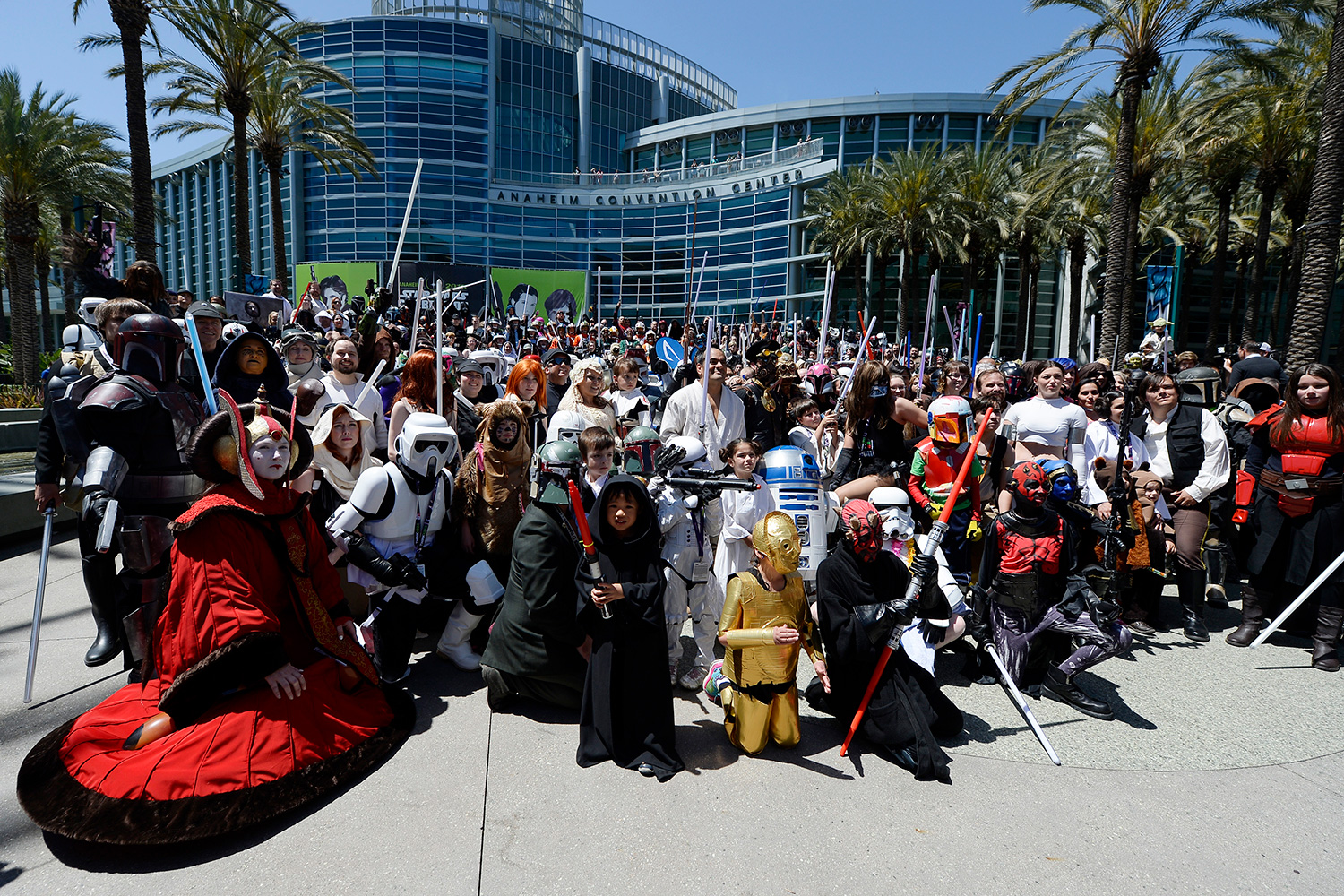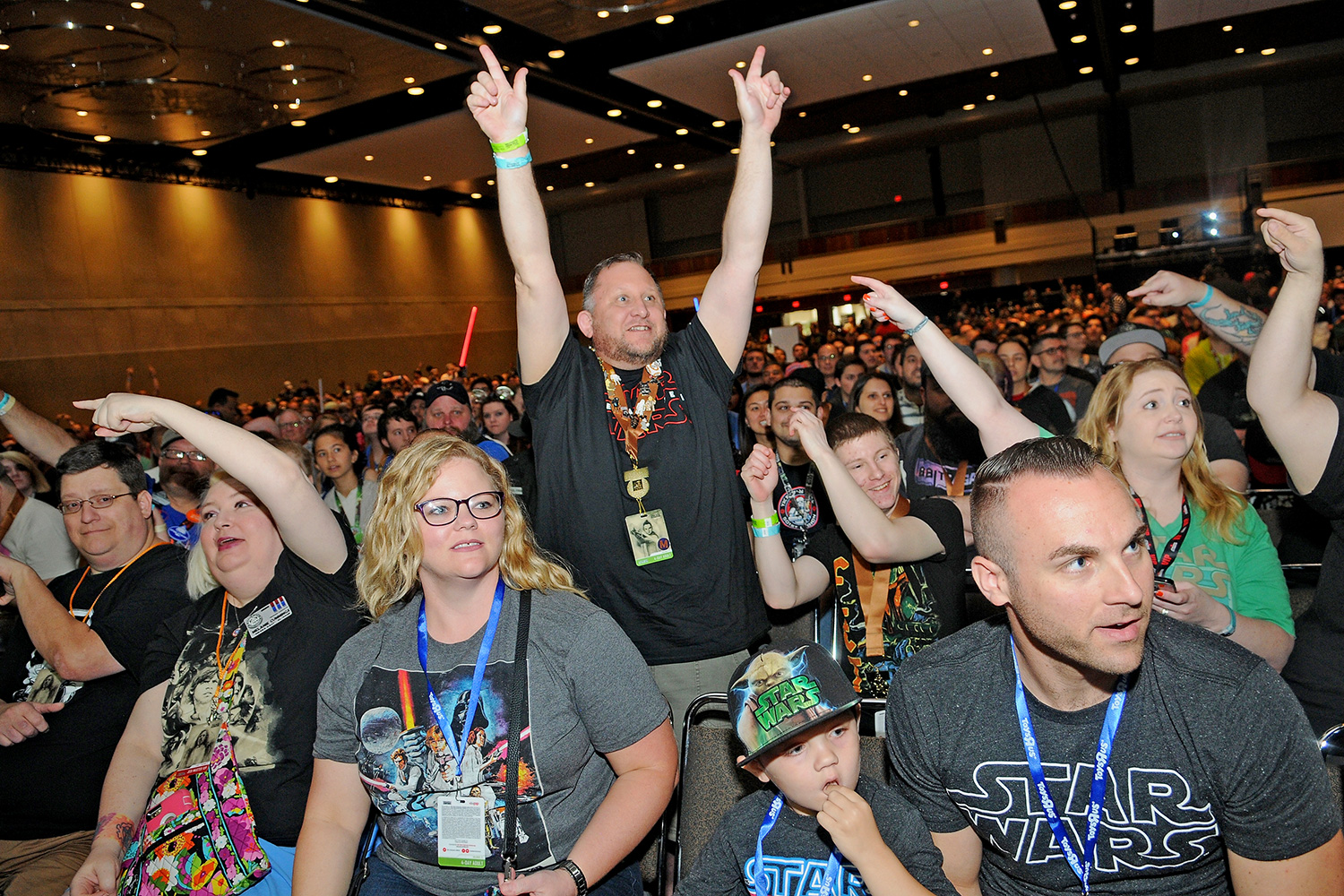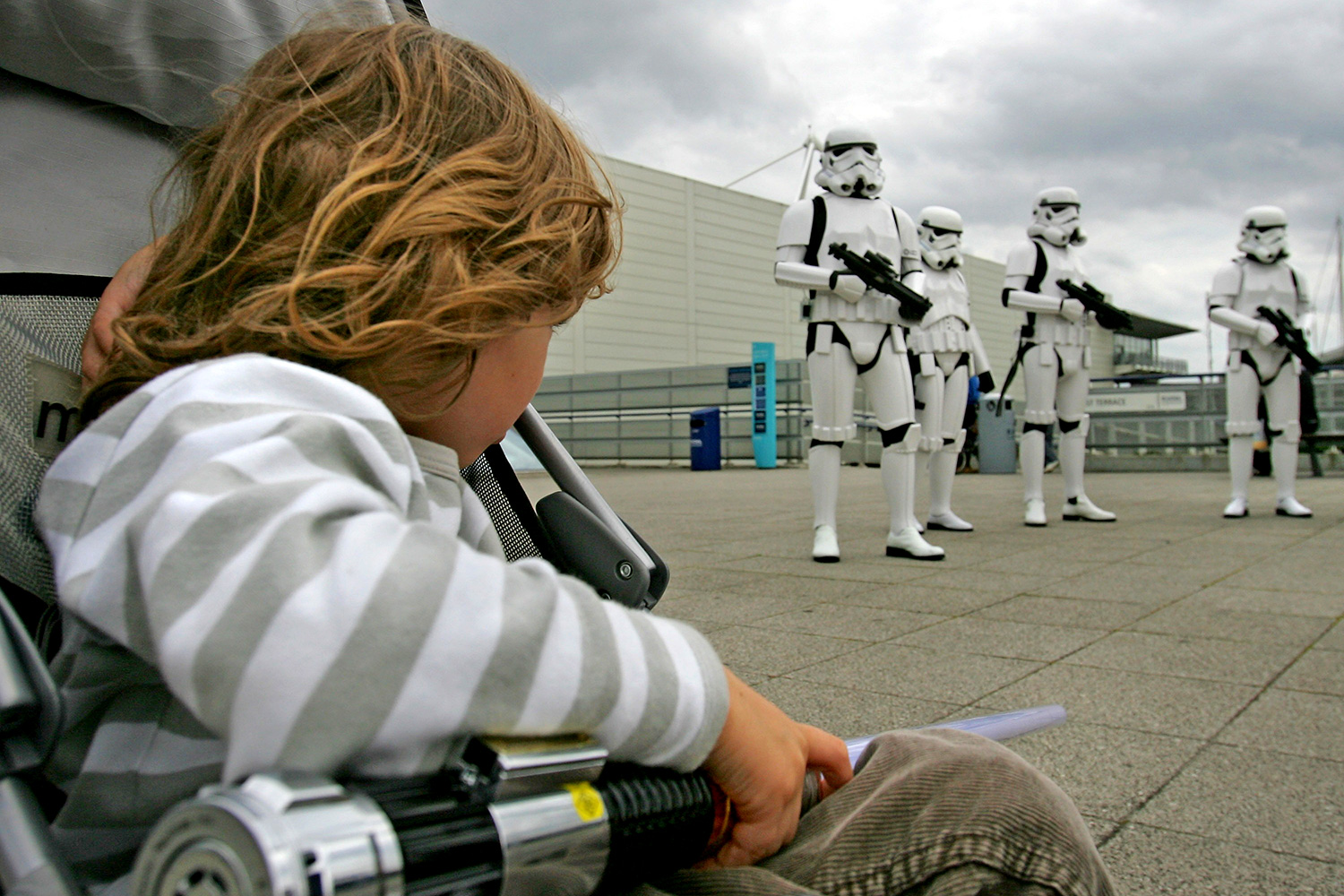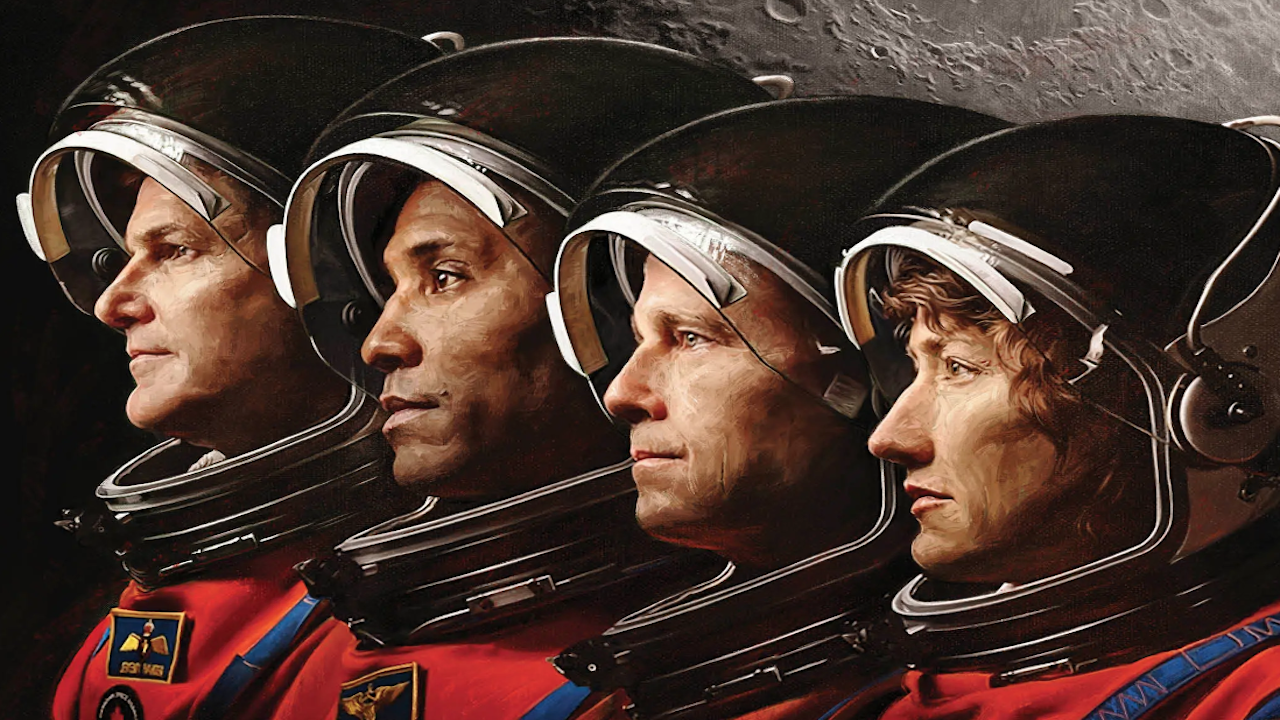Why the Force Is Still Strong with 'Star Wars' Fans

A long, long time ago — 40 years ago this month, actually — an initially small group of theatergoers was transported to a galaxy far, far away, and saw the birth of the "Star Wars" universe.
In the decades since its release, fans have begun to celebrate the space franchise every May 4 — "May the fourth be with you," they say, deliberately playing on the famous phrase, "May the force be with you." (That's followed by a less popular May 5 celebration, called "Revenge of the Fifth," in honor of the 2005 movie "Star Wars Episode III — Revenge of the Sith.")
For such an old franchise, however, "Star Wars" remains surprisingly healthy. Disney took over management and has released two new "Star Wars" films in two years — "Star Wars: The Force Awakens" and "Rogue One: A Star Wars Story" — with a third coming this holiday season. What is it that keeps fans coming back after all this time? [In a Cinema Far, Far Away: All the 'Star Wars' Films]
At the Museum of Pop Culture (MOPOP) in Seattle, where curators devote their lives to studying science fiction and pop culture, there's a lunchroom gathering every time a new "Star Wars" trailer is released. The staff analyze each scene and debate what they think will happen in the movie, and argue about whether the new Disney movies are true to the spirit of the older films.
Brooks Peck, a curator of science fiction, pop culture, film and TV at MOPOP, said the strength of the new films is that they can assume fans know about the larger universe, allowing for individual movies to be specialized. Last year's "Rogue One: A Star Wars Story," for example, referred only in passing to famous characters such as Princess Leia or The Emperor. Instead, it focused on a small group of people trying to get plans for the Death Star — a notorious planet-killing weapon introduced in the very first film, "Star Wars Episode IV — A New Hope" — into the hands of the good guys.
"I think [fans] need to realize that not every 'Star Wars' film now is naturally going to capture that big, sweeping feeling of, say, the original trilogy," Peck said, referring to the first three films released in 1977, 1980 and 1983, which focused on Luke Skywalker's rise from farm boy to Jedi knight.
"That's okay," he added, "because now they have the opportunity to explore all kinds of stories in that world." [Our Favorite "Star Wars"
Ships in Film & TV]
Breaking space news, the latest updates on rocket launches, skywatching events and more!
Expanding frontiers
And what a universe "Star Wars" is. The 1980s saw the rise of merchandising, with "Star Wars" among the franchises that used it extensively. Today, there's a variety of "Star Wars" merchandise to choose from. You can compete for older memorabilia on eBay, pick up the newest product tie-ins on websites like ThinkGeek, or even look for fan-made art at comic cons or online.
The release of "Star Wars: The Force Awakens" in 2015 — the first "Star Wars" film released in 10 years — helped push revenue from licensed merchandise worldwide to $251.7 billion, up 4 percent from the year before, according to the Licensing Industry Merchandisers Association.
While there is a canonical set of "Star Wars" material that includes movies, television shows, specials, video games and more, the franchise has always inspired fans to create and share their own "Star Wars" materials, and the internet has made it easier than ever for people to share those creations. For example, a search of "Star Wars fan film" on YouTube brings up tens of thousands of results. One of the newer entries, with nearly 50,000 views, is a short called "The Force and the Fury", where a Jedi crashes on a remote planet and is pursued by a Sith.
Peck remembers, as a child, cutting out "Star Wars" comics from the local newspaper and pasting them carefully into a scrapbook so he would have a complete set. While the medium may have changed for children today, Peck said there are still universal themes that youth are attracted to. The youngest children think more about parental relationships than romantic relationships, he said, which mirrors the "Star Wars" approach. [The Best "Star Wars" Video Games of All Time]
"There are constant mother figures and father figures [in 'Star Wars'], and now with the new films, Luke has graduated. Now he is the patriarch kind of person," Peck said.
The young female star of "The Force Awakens," Rey, has Jedi powers — but the audience does not know who her family is, or from where her powers came. Peck said that means Skywalker could be her father literally, or just figuratively, as Skywalker is a Jedi knight and may end up teaching Rey about the Force.
"That idea of passing the mantle of power and responsibility to the next generation? That's deep stuff," he said. "And you cloak it with these frigging awesome spaceships and lightsabers and giant creatures. How can you go wrong? It all works."
Gaining new audiences
"Star Wars" is a franchise that began as a part of "nerd" culture, but has eventually ascended to culture in general. The latest trailer for the upcoming "Star Wars: Episode VIII — The Last Jedi" was covered in high-brow publications such as "The Atlantic" and "The New York Times," as well as the usual fan blogs and Wookieepedia (a "Star Wars"-themed Wikipedia.)
"It’s a bundle of portentous imagery that Internet sleuths will likely spend weeks unpacking frame by frame," wrote David Sims of the trailer in "The Atlantic." He added that the movie is "one that suggests a classic middle entry for this trilogy-focused franchise —darker, more chaotic, and with a healthy portion of training montages."
More generally, there are also mythological aspects that keep "Star Wars" fresh for its audience, Peck said.
"The most enduring stories are the ones like 'Star Wars,'" he said. "It explores those big ideas: life, and death, and how should we live, and the thing that is always relevant to society — especially relevant now — is how does an individual make a difference or have an impact in a big, sweeping intergalactic story or conflict."
"Star Wars," he said, "shows over and over that, yes, an individual can make a difference and we have to stand up … and that's important."
Follow Elizabeth Howell @howellspace, or Space.com @Spacedotcom. We're also on Facebookand Google+. Original article on Space.com.

Elizabeth Howell (she/her), Ph.D., was a staff writer in the spaceflight channel between 2022 and 2024 specializing in Canadian space news. She was contributing writer for Space.com for 10 years from 2012 to 2024. Elizabeth's reporting includes multiple exclusives with the White House, leading world coverage about a lost-and-found space tomato on the International Space Station, witnessing five human spaceflight launches on two continents, flying parabolic, working inside a spacesuit, and participating in a simulated Mars mission. Her latest book, "Why Am I Taller?" (ECW Press, 2022) is co-written with astronaut Dave Williams.


